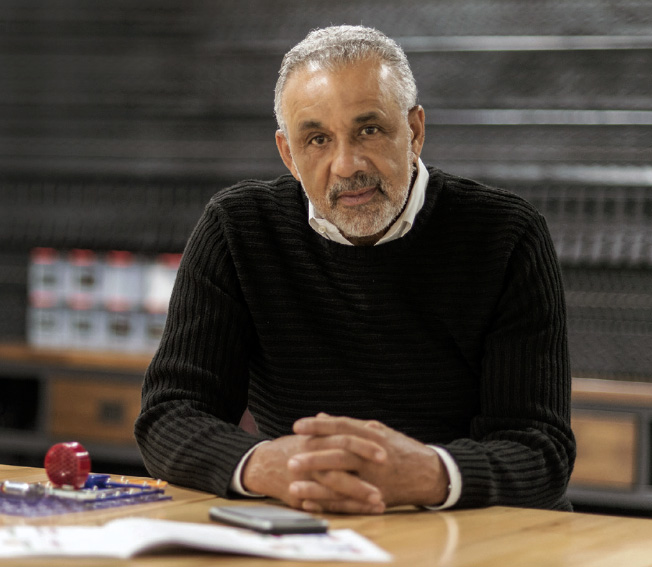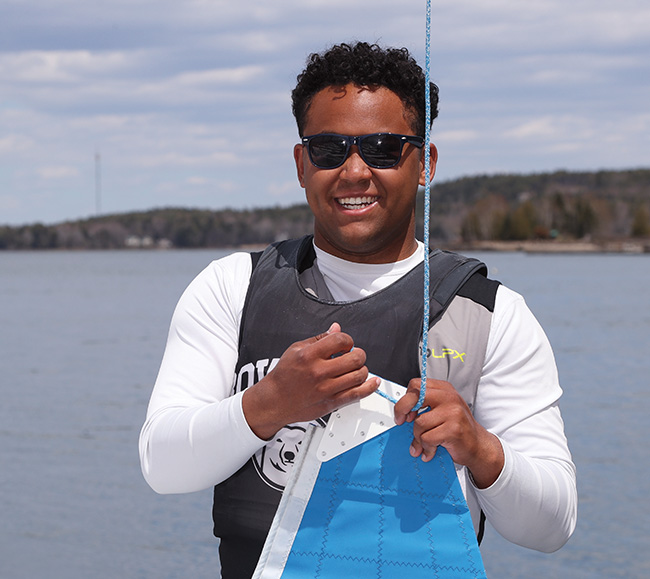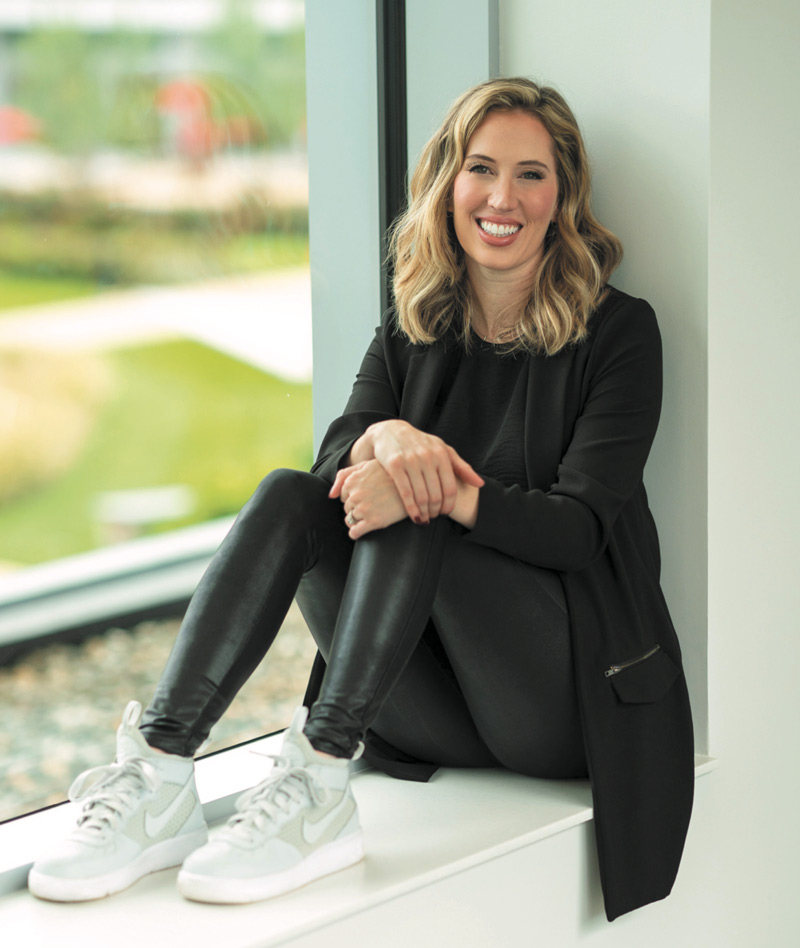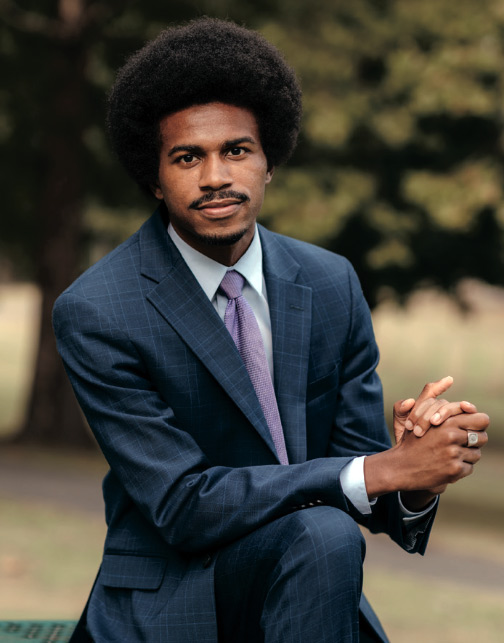The Advocate
By Bowdoin MagazineHylan Hank Hubbard ’69 turned his experience with inequality into a lifelong mission to advance opportunities for others.

What draws you to the work you do as a community advocate and in creating opportunity for childhood education? What’s exciting about it? What's fulfilling?
Growing up with racial segregation and the civil rights movement helped create an ethic— almost an obligation—to become engaged with community advocacy and involvement. Our elders and mentors and the church ingrained in me and my contemporaries that you should try to help others to the extent that you can. I want all our children to have the same or better opportunities that I have had. It is exciting to see programs I’ve been part of—such as LBeacon of Hope, which provides scholarships for Lynchburg graduates to pursue college, and Randolph College, which became more diverse during my term—having a positive impact.
I am a staunch advocate of universal pre-K/early education, which gives children the social and educational skills that will give them a fighting chance to succeed. (We all know the negative consequences when children are not able to read at grade level by the third grade and who have not learned proper socialization skills). Being a community volunteer in my hometown is very gratifying.
How did your career unfold?
When I left Bowdoin, I was married with two children. So any plans that I might have had to attend graduate school were replaced by the need to work. I was fortunate to have responded to an opportunity to become a marketing trainee at Aetna Life & Casualty in Washington, DC. When the interviewers saw that I was Bowdoin grad I was offered the position immediately (the first African American in that position in the company’s 150 year history)! I found a home at Aetna and ultimately retired as senior vice president at Aetna headquarters in Hartford, Connecticut.
You’ve talked about your coming to Bowdoin as a culture shock for you. What do you remember about that experience, and what impact did it have on you?
Coming from an all-Black public high school in segregated Lynchburg, Virginia, created cultural and academic challenges for me at Bowdoin. I think there was a total of eight Black students when I arrived. While I had performed very well in high school (class president, salutatorian, National Honor Society, etc.), I was not quite prepared for the academic rigor and discipline that Bowdoin required. I could have benefitted from what now are called “scaffolding” programs—the most important of which would have been time management and effective study routines. I learned from a Bowdoin friend and classmate that, until second semester sophomore year, everything at Bowdoin had been “review” for him!
In spite of the challenges for me at Bowdoin, in the long run it proved to be a valuable experience. It prepared me to live and work in a diverse world—especially in a company like Aetna where there were so very few nonwhite people.
At Bowdoin I spent far too much time trying to become “accepted,” knowing that most of the students there had had no real exposure to African Americans, at least not in that type of setting.
Tell us about your work as a trustee at Randolph College.
I finished my board term at Randolph College (formerly Randolph Macon Women’s College) on June 30, 2023, as board chair. By virtue of having developed relationships with other board members and supporters on other nonprofit boards, I was invited to join in the Randolph board in 2014. I found this experience exceptionally rewarding as Randolph not only became coed a few years before I joined, but also its student body became significantly more diverse during my term. When I was growing up in Lynchburg, Randolph was essentially a private liberal arts college for mostly white women. It felt unwelcoming to “outsiders.” It was rewarding to participate in and influence its evolution.
What brought you back to Lynchburg?
Having founded and ultimately having closed a small insurance company in Florida (that served underserved markets), I returned to Lynchburg in 2007. My then-wife, Christine (née Richardson), was very ill. She was my classmate and girlfriend in high school. Since our family owned a farm in Forest just outside of Lynchburg, we decided to return home. We had moved so many times with Aetna that there really was no other place that we felt was “home.” Sadly, Chris passed in 2015.
What inspires you?
I always harken back to the Bowdoin’s Offer of the College … what inspires me is to see people—especially those who are challenged by circumstances such poverty, lack of education, or whatever obstacle—be able to improve and have a chance to have hope and better lives.
What do you enjoy doing in your spare time?
I am now married to Ryan Russell, also a Lynchburg native. We just celebrated our third anniversary. We live on our idyllic farm in Forest with our golden doodle, Remi, and all sorts of wildlife and some cows! We love to travel, binge watch crazy programs, love a wide array of music, and share a wacky sense of humor. She is a writer and teaches creative writing. I am a lousy but relentless golfer!
Favorite Bowdoin memory? Or best thing you learned at Bowdoin?
What I learned most from Bowdoin is the value of a first-class liberal arts education that prepares you to participate productively as a citizen of the world and provides a solid foundation for almost any occupation. I have always felt comfortable in all sorts of settings, from the White House to the local pool hall. I owe a lot of that to Bowdoin. I think that I would not be able to say that had I not had the Bowdoin experience.

This story first appeared in the Fall 2023 issue of Bowdoin Magazine. Manage your subscription and see other stories from the magazine on the Bowdoin Magazine website.



